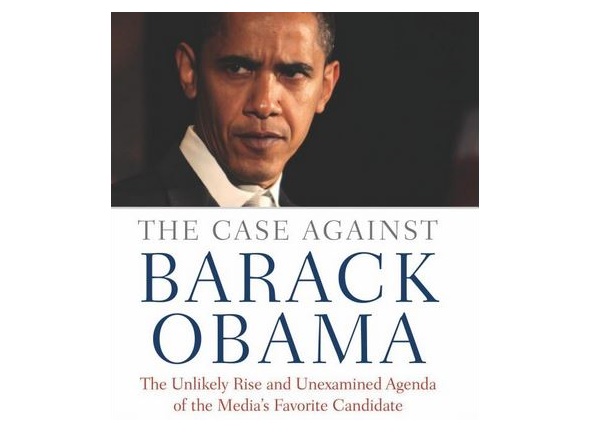On Sunday’s radio show we had the pleasure of speaking with David Freddoso, the author of the new blockbuster book “The Case Against Barack Obama,” which after eighteen months into the longest presidential campaign in history shouldn’t have had to be written. (The audio of our interview will be posted soon.)
The subtitle of the book sums it up “The Unlikely Rise and Unexamined Agenda of the Media’s Favorite Candidate.” For decades we’ve all watched the decline of the press. Media watchdog groups have been successful in chronicling the leftward political bias and shoddy reporting. Public opinion polls show that fewer Americans than ever trust the information coming from the mainstream media.
This summer one of the bigger news stories is actually about the members of the press and their love affair with young Barack.
Those of us in Illinois have been witness to this immature behavior now for almost four and a half years. When the news hit during the 2004 Democratic Party U.S. Senate primary about Obama’s opponent’s alleged violent act against his ex-wife, that candidate faded and the new Illinois messiah was born.
All of the Chicago and most of the Illinois press were immediately enamored of the new leader in the polls, and when Obama won the primary, their love affair with Obama escalated and it hasn’t ended yet.
Obama’s flirtation with the national press began in earnest when he delivered that vapid 2004 address to the Democratic National Convention. When he announced his run for the presidency in February 2007, the deep dedication on the part of the media towards the candidate has been a sight to behold.
Of course what we’ve been witnessing is just puppy love – it certainly hasn’t been an exercise in journalism.
Author and commentator Hugh Hewitt wrote last year that the high profile network news media “lost their collective news judgment years ago, and still haven’t figured out how to get it back.” Hewitt notes that at one time the public trusted the press, but now they simply don’t.
A lot of ink has been spilled and website pages dedicated to outlining this ongoing journalism crisis. Several excellent books have been written in the last few years and as noted above, one of the biggest news stories this year is again about the failings of the news media. When Barack came along, the media was already very susceptible to a fall.
More Americans than ever are very aware of the exercise of “advocacy journalism,” where members of the press are blatantly attempt in their attempts to shape public opinion. While reporting the news in a fair and accurate manner might once have been the goal, selecting what to ignore and what to report as well as slanting its presentation is now what the media does best.
William McGurn wrote earlier this year in the Wall Street Journal that “otherwise talented reporters and commentators” very often stick with the “same stale storyline long after the facts on the ground have changed.” No better example of this exists than the historic transformation that took place during 2007 in Iraq. Victory in a long and bloody war is big news except for members of the press who insist on a news blackout because they prefer to remain stuck in the quagmire of wanting President George W. Bush to fail.
Of course none of this is new. Anyone who has observed or participated in government or politics knows that the quality of the version of events you read about in the newspaper is dependent upon the integrity and competence of the person writing the account. If that individual wants to influence how the public interprets what happened instead of merely reporting the news, that’s accomplished easily enough.
The good news is that the media is looking foolish to more and more Americans every year. The bad news is that still too few elected Republicans understand that their number one job is to win public support for policy solutions based on our party’s platform principles. Worse, these Republicans fail to do what it takes to overcome the broken press.
At a political event in the fall of 1991 a U.S. Congressman used the media as the excuse for why he and his colleagues were failing to effectively advance a Republican message. That was a lousy excuse before the Internet and the explosion of talk radio and it certainly is a lousy excuse now.
Much of what I’ve written about on these pages is an attempt to get those with power (our elected and party officials) thinking differently about what it’s going to take to achieve governing majorities. The campaign of Barack Obama and his treatment by the media should serve as an object lesson to those who refuse to change their ways.
The mainstream media is broken, but Republicans can’t wait for it to fix itself. A big part of the work ahead will involve tapping creative minds and big wallets to overcome the lack of accurate news and information flowing to busy Americans.
It’s the Democrat Party that benefits from this glaring problem with the media. Fortunately every year more Americans understand that something is amiss. A big part of our call for a renaissance and reformation has to do with meeting this very challenge. If you’re up to the task, the Republican Party needs you to enlist in the fight. All honest and talented people are welcome and needed.

